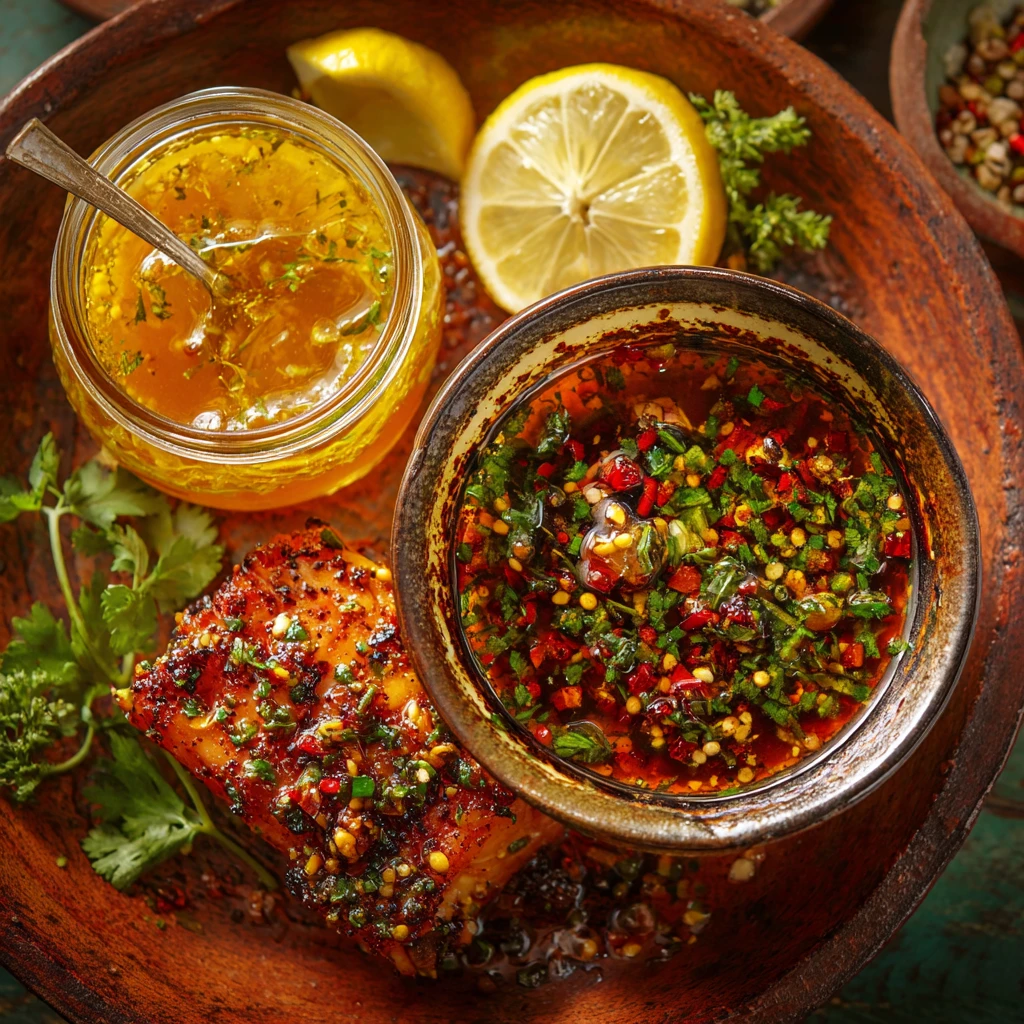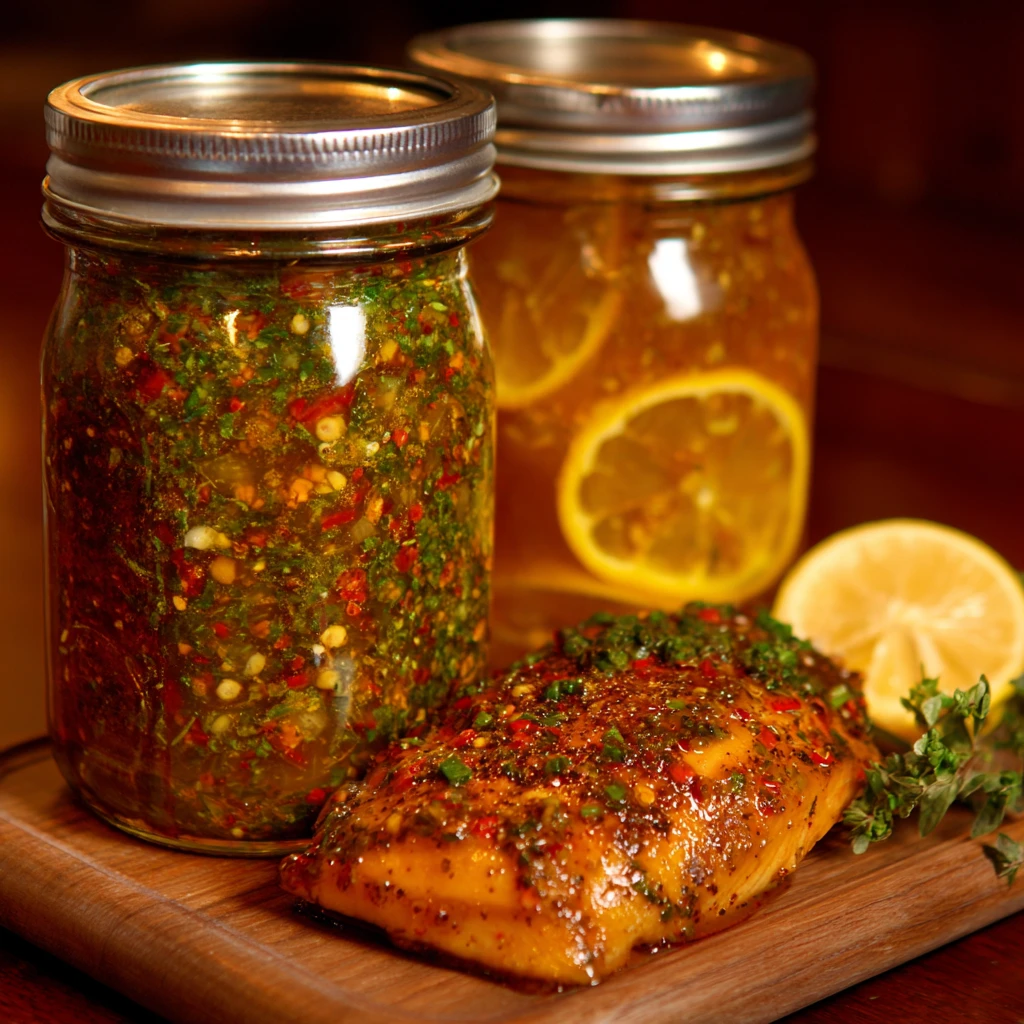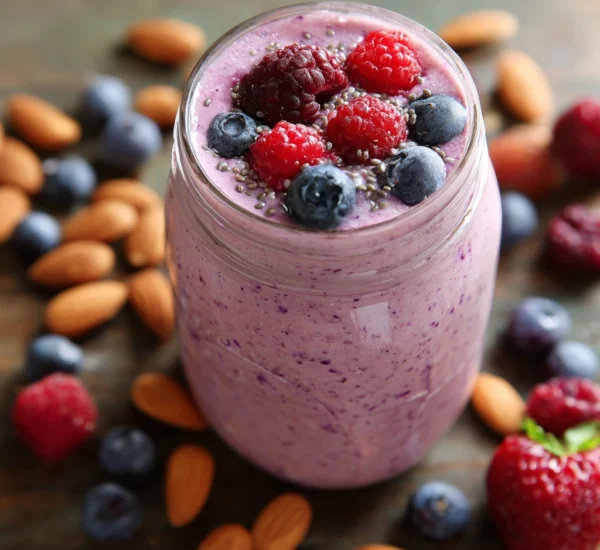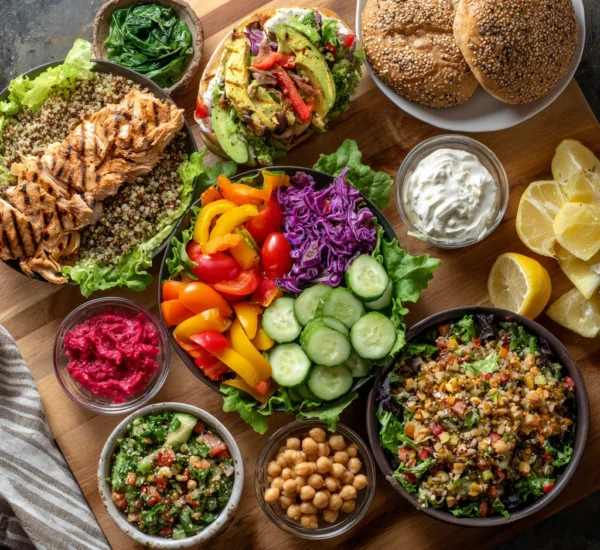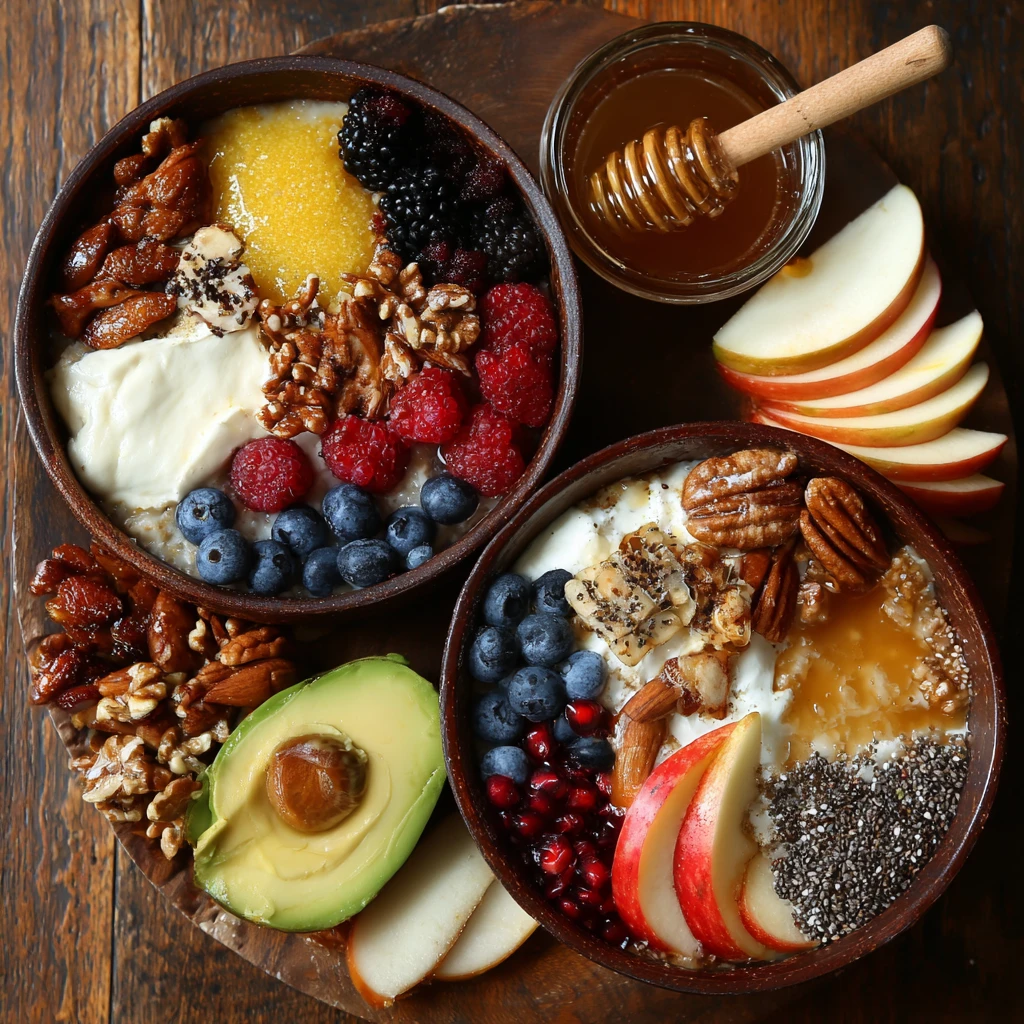Bright and Zesty Marinades for Any Dish
Marinades are culinary magic, transforming ordinary ingredients into flavor explosions. A bright and zesty marinade, in particular, can elevate proteins, vegetables, and even tofu to new heights. The combination of acidity, oil, and aromatics tenderizes, infuses, and adds complexity that simple seasoning just can’t match. This guide explores the art of crafting the perfect bright and zesty marinade for virtually any dish.
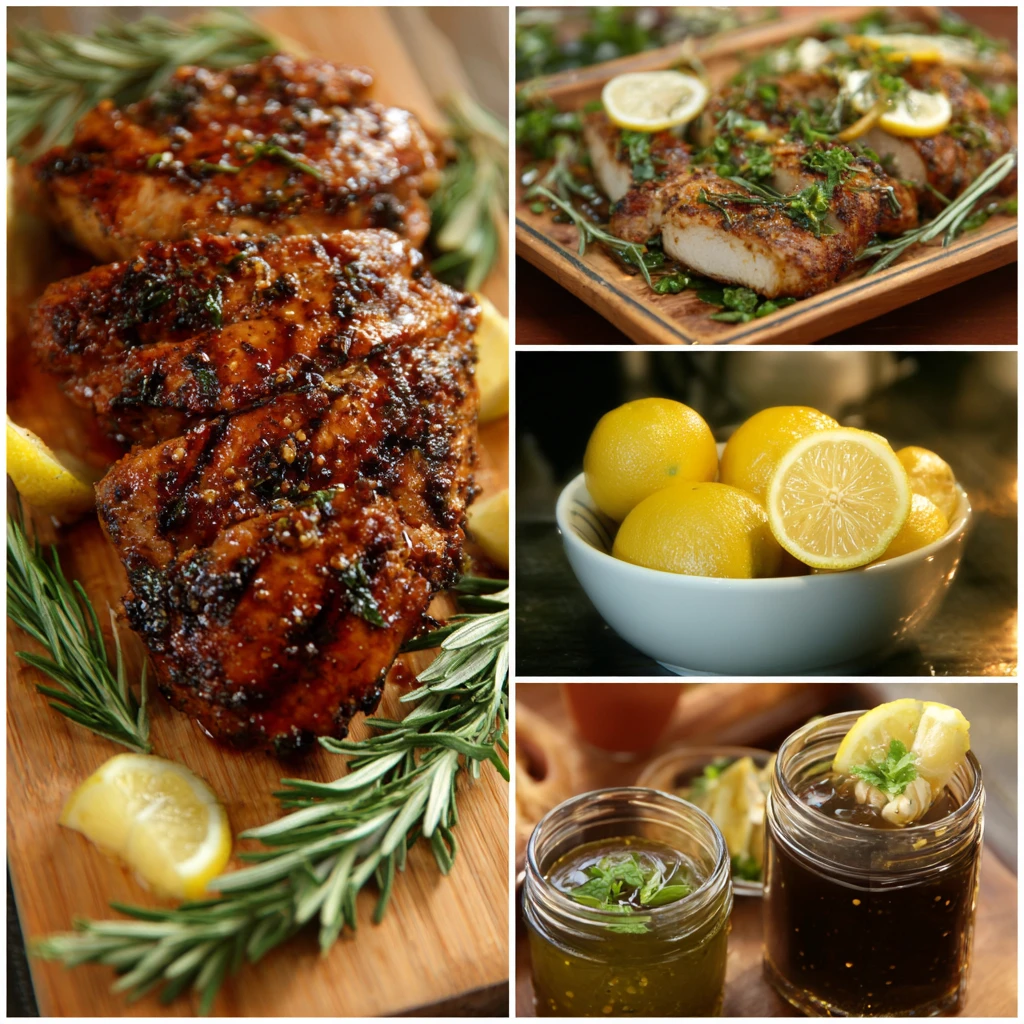
Understanding the Core Components of a Zesty Marinade
The foundation of any good marinade rests on a balance of three key elements: acidity, fat, and flavor. Understanding how these components interact is crucial to creating a marinade that truly shines.
Acidity: The Tenderizing Powerhouse: Acidic ingredients like citrus juice, vinegar, and yogurt work to break down proteins, resulting in a more tender and flavorful final product. The type of acid used will significantly impact the overall flavor profile. Lemon and lime juice offer a bright, citrusy tang, while vinegars can range from the subtle sweetness of rice vinegar to the sharper bite of red wine vinegar. Yogurt, particularly Greek yogurt, provides a creamy tang and helps the marinade cling to the food.
Fat: Moisture and Flavor Carrier: Oil not only adds moisture but also acts as a flavor carrier, helping the aromatic compounds in herbs and spices penetrate the food more effectively. Olive oil is a versatile choice with its fruity notes, while sesame oil adds a distinct nutty flavor. For a neutral flavor, vegetable or canola oil can be used. The type of fat you choose will also affect the marinade’s texture; some oils will solidify in the refrigerator more than others.
Flavor: The Aromatic Symphony: This is where you can truly unleash your creativity. Fresh herbs like cilantro, parsley, and oregano provide bright, herbaceous notes. Spices such as garlic, ginger, chili flakes, and cumin add warmth, depth, and a touch of heat. Sweeteners like honey, maple syrup, or agave can balance the acidity and add a subtle sweetness. Consider the dish you’re marinating and choose flavors that complement it. A marinade for chicken might feature lemon, garlic, and rosemary, while a marinade for fish could highlight lime, ginger, and chili.
Crafting Marinades for Different Dishes
The beauty of marinades is their versatility. However, different types of food benefit from specific flavor profiles and marinating times. Here are some guidelines for crafting marinades for various dishes.
Chicken and Poultry: Chicken is a blank canvas for flavor. Zesty marinades with citrus, garlic, and herbs are particularly effective. Lemon-herb marinades are a classic choice, while variations with orange juice, ginger, and soy sauce create an Asian-inspired flavor. For spicier options, consider adding chili flakes or a touch of Sriracha. Marinating time: 30 minutes to 8 hours, depending on the size of the chicken pieces.
Beef and Pork: Marinades for beef and pork often benefit from bolder flavors. Red wine vinegar, balsamic vinegar, and Worcestershire sauce add depth and complexity. Garlic, onions, and hearty herbs like thyme and rosemary pair well with these meats. A touch of sugar or honey can help caramelize the surface during cooking. Marinating time: 2 hours to 24 hours, depending on the cut of meat. Tougher cuts benefit from longer marinating times.
Fish and Seafood: Fish and seafood are delicate and require shorter marinating times. Over-marinating can result in a mushy texture. Bright, citrusy marinades with lemon, lime, and ginger are ideal. Fresh herbs like dill, parsley, and cilantro add a fresh, vibrant flavor. Avoid strong or overpowering flavors that can mask the delicate taste of the fish. Marinating time: 15 minutes to 30 minutes.
Vegetables and Tofu: Vegetables and tofu absorb marinades readily. Zesty marinades with lemon, garlic, and herbs work well for grilled or roasted vegetables. For tofu, consider using a marinade with soy sauce, sesame oil, and ginger to add savory depth. Marinating time: 30 minutes to 2 hours. For denser vegetables like eggplant, you may consider scoring them beforehand to allow better penetration of the marinade.
Tips for Maximizing Marinade Flavor
While the recipe is important, certain techniques can further enhance the effectiveness of your bright and zesty marinade.
Proper Marinating Time: Marinating time is crucial. Over-marinating can lead to a mushy texture, particularly with fish and seafood. Conversely, under-marinating won’t allow the flavors to fully penetrate the food. Follow the recommended marinating times for each type of ingredient.
The Right Container: Use a non-reactive container such as glass, plastic, or stainless steel. Avoid aluminum, as the acidic marinade can react with the metal. A zip-top bag is also a convenient option for marinating, as it allows you to evenly coat the food.
Submerging the Food: Ensure that the food is fully submerged in the marinade. This will ensure that all surfaces are evenly flavored. If using a zip-top bag, squeeze out any excess air.
Refrigeration is Key: Always marinate food in the refrigerator to prevent bacterial growth. Never marinate at room temperature.
Don’t Reuse Marinade: Used marinade may contain harmful bacteria from the raw food. Discard any leftover marinade after use. If you want to use the marinade as a sauce, boil it thoroughly for several minutes to kill any bacteria.
Beyond the Basics: Creative Marinade Combinations
Once you’ve mastered the fundamentals, experiment with creative flavor combinations to create unique and exciting marinades.
Mediterranean Zest: Combine lemon juice, olive oil, garlic, oregano, and a pinch of red pepper flakes for a bright and flavorful marinade perfect for chicken, fish, or vegetables.
Asian-Inspired Tang: Mix lime juice, soy sauce, sesame oil, ginger, and a touch of honey for a marinade that adds a vibrant, savory, and sweet flavor to tofu, chicken, or pork.
Tropical Citrus Burst: Combine orange juice, pineapple juice, lime juice, garlic, ginger, and a pinch of chili powder for a marinade that brings a taste of the tropics to chicken, shrimp, or pork.
Spicy Southwestern Kick: Blend lime juice, olive oil, garlic, cumin, chili powder, and a dash of smoked paprika for a marinade that adds a smoky, spicy kick to beef, chicken, or vegetables.
Herby Lemon Infusion: Infuse olive oil with lemon zest, fresh thyme, rosemary, and a pinch of sea salt for a simple yet elegant marinade perfect for fish, chicken, or vegetables.
Frequently Asked Questions
Can I marinate food for too long?
Yes, especially with acidic marinades. Over-marinating can break down the proteins too much, resulting in a mushy texture. Fish and seafood are particularly susceptible to over-marinating.
Can I freeze marinated food?
Yes, you can freeze food in marinade. This is a great way to prepare meals in advance. The marinade will continue to flavor the food as it thaws.
Can I use the marinade as a sauce?
Yes, but you must boil it thoroughly first to kill any bacteria. Bring the marinade to a boil and simmer for several minutes before serving.
What if I don't have all the ingredients in a recipe?
Don’t be afraid to substitute ingredients based on what you have on hand. For example, you can substitute lemon juice for lime juice, or use dried herbs instead of fresh (use about one-third the amount of dried herbs as you would fresh).
How do I make a marinade less acidic?
Add more oil or a sweetener like honey or maple syrup. You can also add a dairy product like yogurt or buttermilk.
Is it better to marinate in the fridge or at room temperature?
Always marinate in the refrigerator to prevent bacterial growth.
